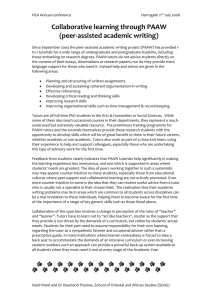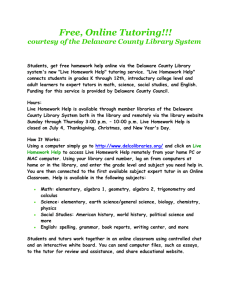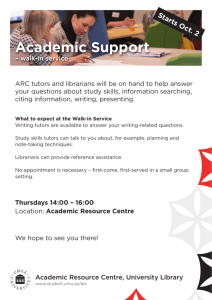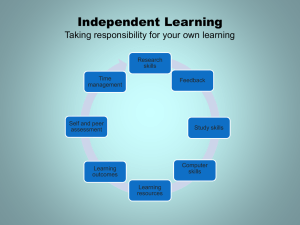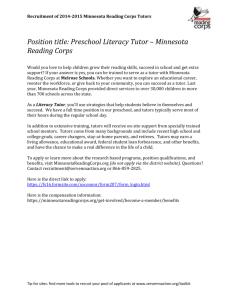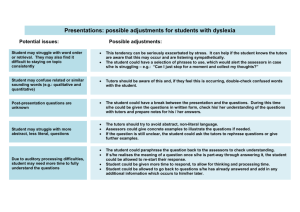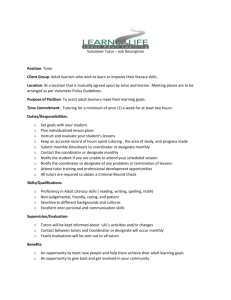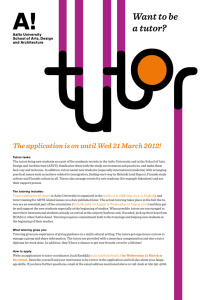Transforming Learning Cultures in FE: Conception/s of learning and
advertisement
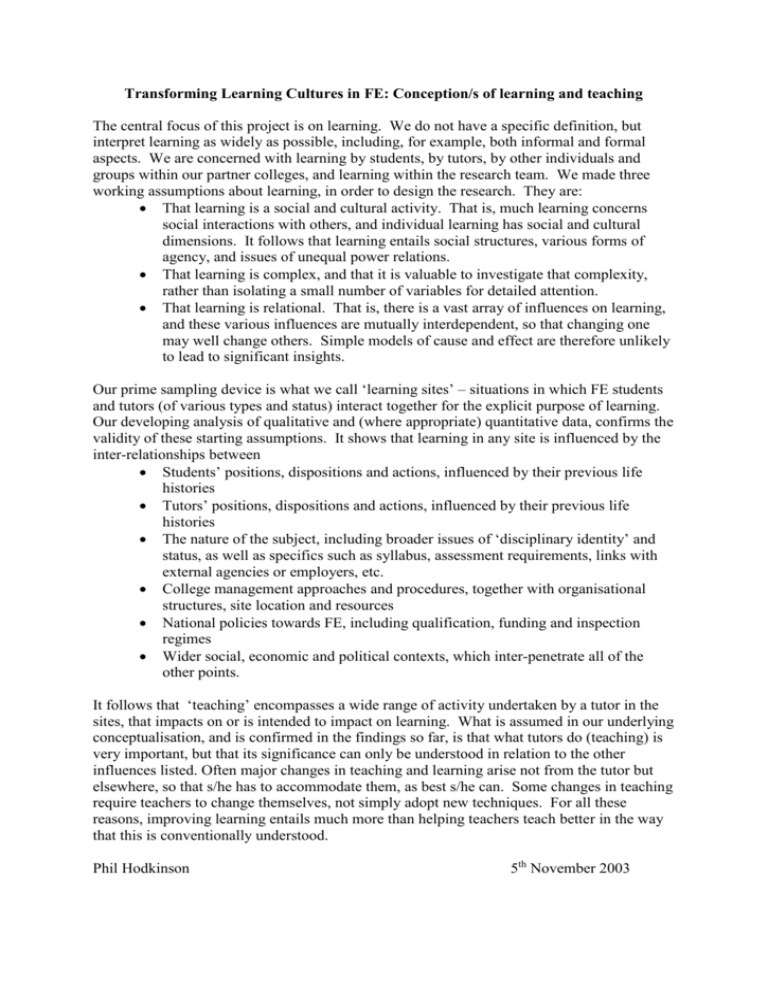
Transforming Learning Cultures in FE: Conception/s of learning and teaching The central focus of this project is on learning. We do not have a specific definition, but interpret learning as widely as possible, including, for example, both informal and formal aspects. We are concerned with learning by students, by tutors, by other individuals and groups within our partner colleges, and learning within the research team. We made three working assumptions about learning, in order to design the research. They are: That learning is a social and cultural activity. That is, much learning concerns social interactions with others, and individual learning has social and cultural dimensions. It follows that learning entails social structures, various forms of agency, and issues of unequal power relations. That learning is complex, and that it is valuable to investigate that complexity, rather than isolating a small number of variables for detailed attention. That learning is relational. That is, there is a vast array of influences on learning, and these various influences are mutually interdependent, so that changing one may well change others. Simple models of cause and effect are therefore unlikely to lead to significant insights. Our prime sampling device is what we call ‘learning sites’ – situations in which FE students and tutors (of various types and status) interact together for the explicit purpose of learning. Our developing analysis of qualitative and (where appropriate) quantitative data, confirms the validity of these starting assumptions. It shows that learning in any site is influenced by the inter-relationships between Students’ positions, dispositions and actions, influenced by their previous life histories Tutors’ positions, dispositions and actions, influenced by their previous life histories The nature of the subject, including broader issues of ‘disciplinary identity’ and status, as well as specifics such as syllabus, assessment requirements, links with external agencies or employers, etc. College management approaches and procedures, together with organisational structures, site location and resources National policies towards FE, including qualification, funding and inspection regimes Wider social, economic and political contexts, which inter-penetrate all of the other points. It follows that ‘teaching’ encompasses a wide range of activity undertaken by a tutor in the sites, that impacts on or is intended to impact on learning. What is assumed in our underlying conceptualisation, and is confirmed in the findings so far, is that what tutors do (teaching) is very important, but that its significance can only be understood in relation to the other influences listed. Often major changes in teaching and learning arise not from the tutor but elsewhere, so that s/he has to accommodate them, as best s/he can. Some changes in teaching require teachers to change themselves, not simply adopt new techniques. For all these reasons, improving learning entails much more than helping teachers teach better in the way that this is conventionally understood. Phil Hodkinson 5th November 2003




